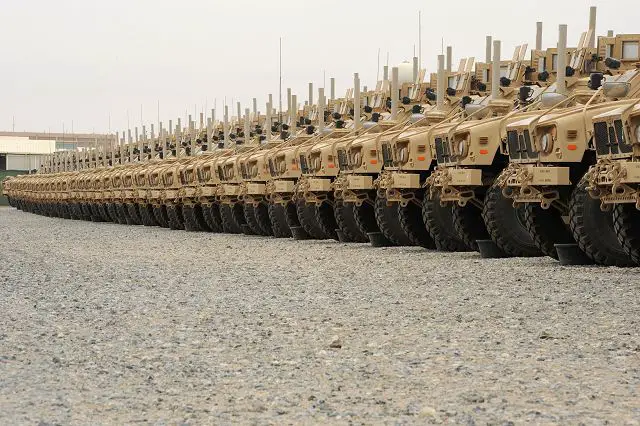| a | |||
Defence & Security News - Pakistan |
|||
| Monday, March 17, 2014 07:49 AM | |||
| Pakistan shows interest of U.S. Army MRAP that United States used in Afghanistan. | |||
The
discussions between American and Pakistani officials have been going on
for months and center on leftover military hardware that the United States
does not want to pay to ship or fly home. Although no final decisions
have been made, Pakistan is particularly interested in the U.S. Army’s
mine-resistant ambush-protected (MRAP) vehicles, which Pentagon officials
say will have limited strategic value as U.S. forces withdraw from Afghanistan
this year. |
|||
 Thousands of MRAPs were deployed in Afghanistan, U.S. officials believe that the return to the United States is to expensive. |
|||
| |
|||
| The U.S. military may have another option for disposing of $7 billion worth of armored vehicles and other equipment it’s struggling to get rid of now that its war in Afghanistan is ending. Some
of it could be driven across the border and handed over to Pakistan, part
of an effort by the Pentagon to unload excess military supplies to U.S.
allies at no cost. But Pakistan’s troops remain vulnerable to roadside bombs and explosive devices, and their armored vehicles can withstand far less force than a U.S.-made MRAP, officials said. The
United States had been a major weapons supplier to Pakistan for decades,
but those sales slowed dramatically after the U.S. military raid that
killed Osama bin Laden in Pakistan in 2011. |
|||
Pakistan shows interest of U.S. Army MRAP that United States used in Afghanistan 1703141
- Posted On














